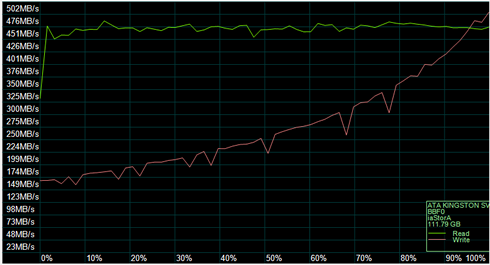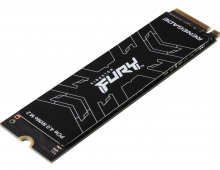Kingston SSDNow V300 120GB review
6. AS SSD benchmark
We proceed with the AS SSD benchmark, which contains five synthetic as well as three practical tests. The synthetic tests determine the sequential and the random read / write performance of an SSD. These tests are carried out without using the operating system's cache. The Seq-test measures how long it takes to read and write an 1GB file. Most importantly, this sequential benchmark uses incompressible data for all of its transfers.
The 4K benchmark tests the read and write performance for random 4K blocks. The 4K-64-THRD-test corresponds to the 4K procedure except that here the read and write operations are distributed on 64 threads:
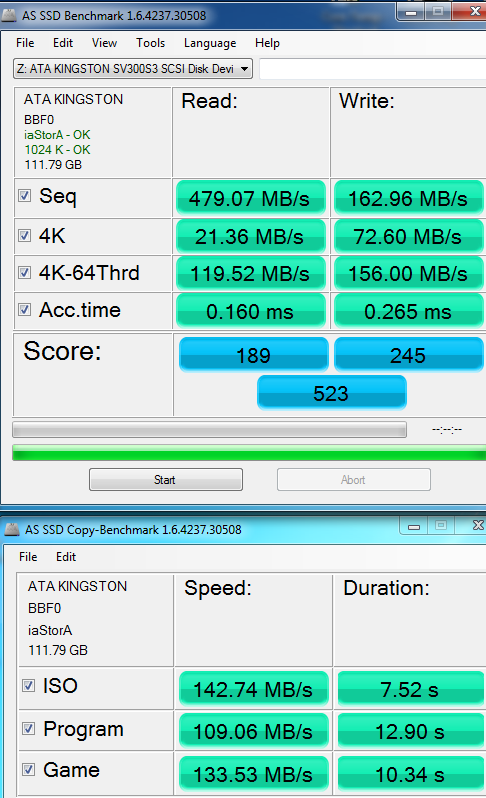
The SSDNow V300's performance in sequential reading with incompressible test was adequate (479 MB/S), matching the performance quoted by Kingston. That was not the exactly case with sequential writing, where the drive was slower and wrote the incompressible files at just 162.96MB/s (average). That's a typical behavior of Sandforce controllers:
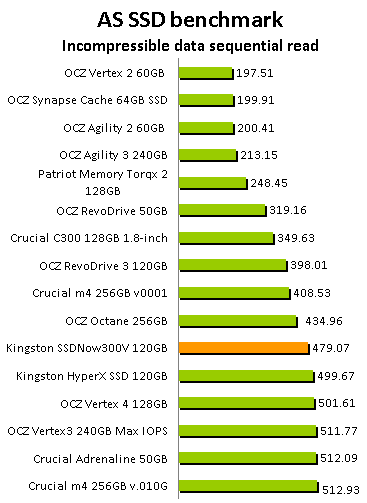
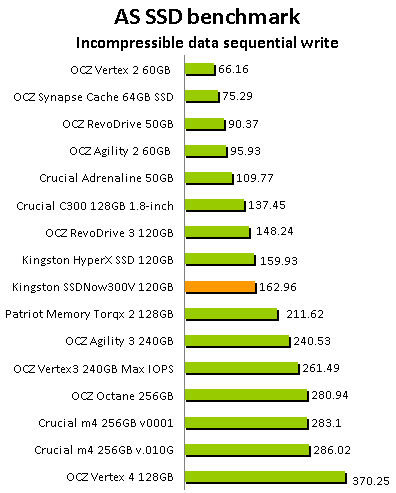
At the 4K random reading tests, the SSDNow V300 120GB ranks somewhere in the middle of the chart below, with an average reading speed of 21.36MB/s.
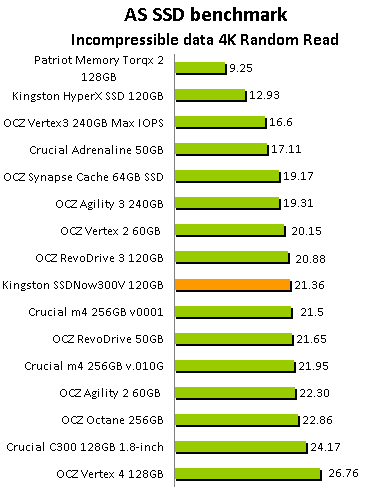
The drive was fast in 4K random reading tests with 72.6 MB/s:
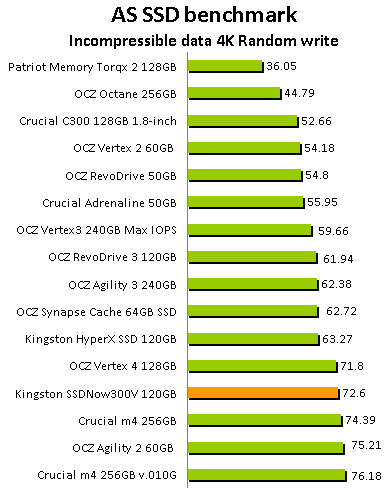
Multi-theraded requests for random reading of 4K incompressible files was more demanding for the drive. It read the files at 119.52 MB/s, but it was faster at the corresponding writing benchmark with 156 MB/s:
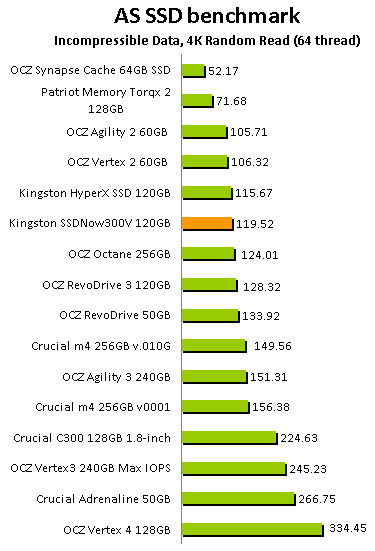

In the following graph you see how the SSDNow V300 120GB drive reads and writes files, which have been partially of fully compressed. It is obvious that the drive's reading performance is steady with all kind of data and the writing speed heavily depends on compression level of the files:
